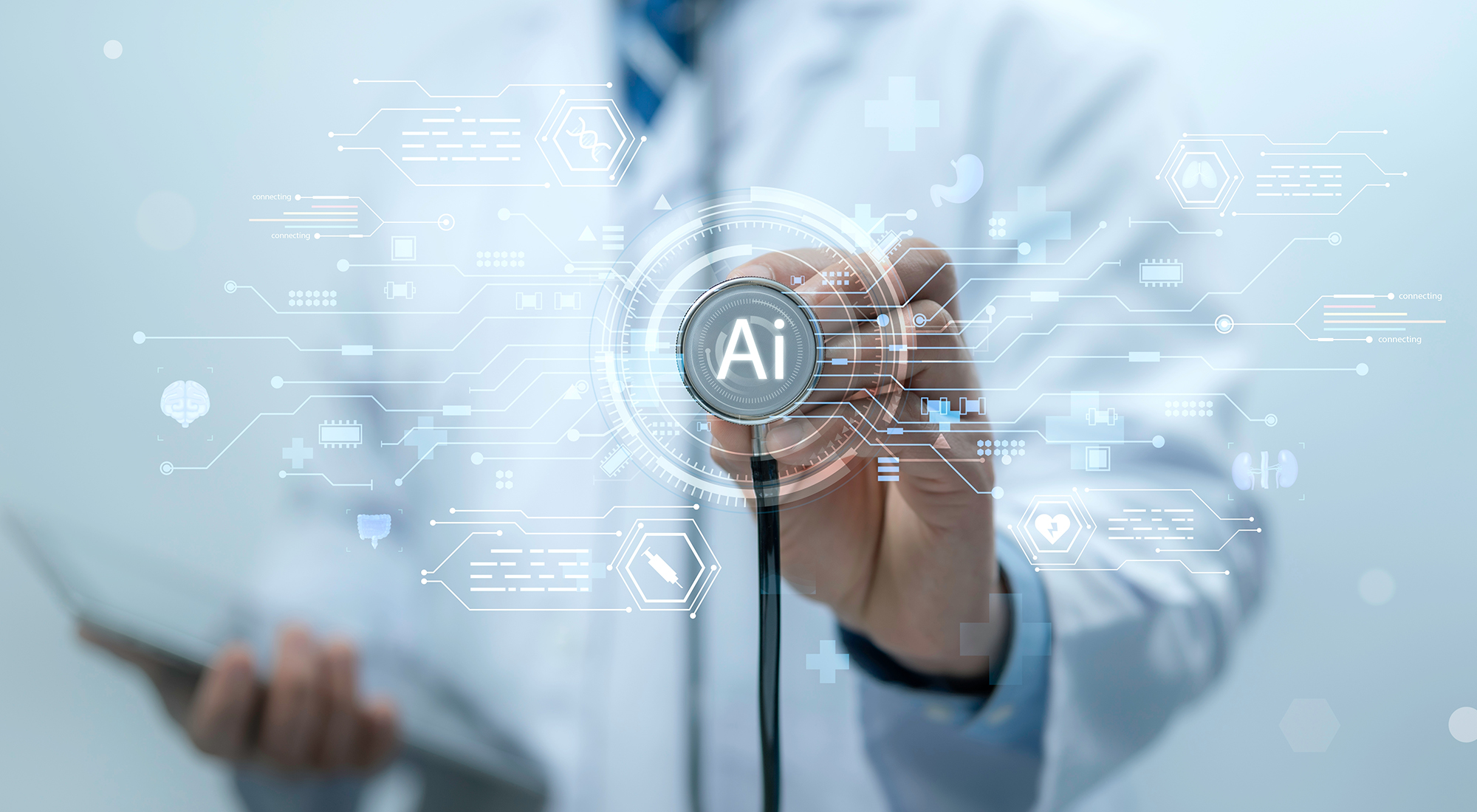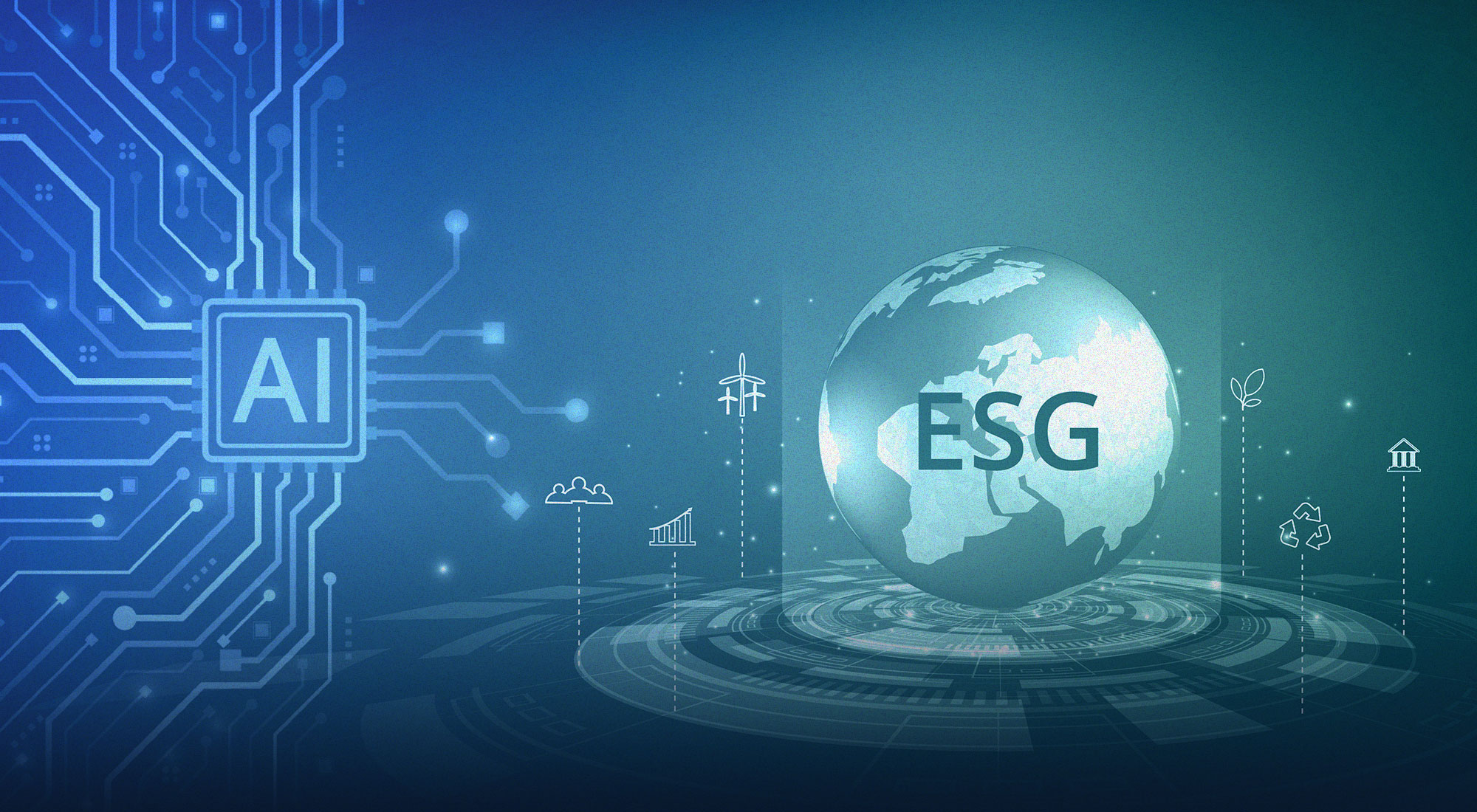As the global population ages, the quest for longevity and enhanced quality of life for older adults has become an urgent focus in the healthcare industry. Recent advancements in Artificial Intelligence (AI) have opened new frontiers in the understanding and treatment of aging-related conditions, prompting a surge in investments aimed at leveraging AI to foster healthier aging. The integration of AI into drug discovery processes has shown promise in identifying novel compounds that specifically target the biological mechanisms of aging, thereby improving the efficiency and accuracy of developing longevity-promoting therapies. Moreover, AI’s capabilities in genomic analysis are revolutionizing how we interpret vast amounts of genetic data, enabling researchers to uncover insights into the aging process and tailor interventions to individual needs.
Predictive healthcare models powered by AI are also emerging as critical tools for anticipating health issues in elderly populations, allowing for proactive measures that can significantly enhance life expectancy and quality of life. However, the intersection of AI with genomic data presents its own set of challenges, including data integration, ethical considerations, and the need for robust validation of AI-driven predictions. This insight will explore the multifaceted role of AI in drug discovery, genomic analysis, and predictive healthcare for aging populations, ultimately addressing the question of whether AI can indeed contribute to extending human longevity and redefining healthcare for the elderly.
AI in Drug Discovery for Longevity
How is AI being utilized in the drug discovery process to target aging?
AI is increasingly being leveraged in the drug discovery process to target aging by unraveling complex biological processes, such as autophagy and apoptosis, which are integral to cellular homeostasis and longevity. Autophagy, a vital cellular maintenance process, and apoptosis, programmed cell death, play significant roles in eliminating damaged cells and maintaining overall tissue health. With age, these processes become less efficient, contributing to cellular degeneration and aging-related diseases. AI-driven bioinformatics, when combined with machine learning (ML) algorithms, offers a powerful tool to explore the intricate relationships between these cellular processes and aging. For instance, supervised ML systems have successfully identified the gene AKT1, which plays a crucial role in apoptosis, as significantly age-related, thereby providing a potential target for interventions aimed at mitigating age-associated cellular decline.[1] AKT1’s modulation of cellular survival and stress resistance is a promising avenue for developing drugs that can restore the balance of apoptotic processes, contributing to healthier aging.
Furthermore, experiments in model organisms like mice have demonstrated that proteins influencing CDK1, another key player in apoptosis, are intricately linked to the aging process, offering further insights into how cellular mechanisms can be modulated to promote healthy aging.[2] CDK1’s regulation of cell cycle checkpoints is particularly important because it maintains genomic stability—a critical factor in preventing diseases like cancer, which are more prevalent in older populations. These findings underscore the potential of AI to revolutionize the drug discovery process by enabling a more precise understanding of the biological underpinnings of aging, highlighting the importance of continued investment in AI technologies to develop effective anti-aging therapies.
What are the current advancements in AI-driven drug development for aging-related diseases?
Building upon the integration of varied data types for understanding molecular mechanisms, current advancements in AI-driven drug development for aging-related diseases have leveraged deep learning (DL) and deep neural network approaches extensively. These sophisticated AI models excel at processing and synthesizing large datasets to predict therapeutic outcomes more accurately and identify new drug targets. For instance, deep feature selection algorithms have shown promising results in target identification and biomarker development specific to aging, enabling a more tailored approach to tackling age-associated pathologies.[3] Biomarkers, such as those related to inflammation, oxidative stress, and metabolic dysfunction, are key indicators of aging processes, and AI’s ability to discern subtle patterns in vast datasets can lead to earlier detection of these markers.
Companies like Insilico Medicine are at the forefront of these innovations, integrating multi-modal data to advance aging research. This includes initiatives such as the young.ai system, which facilitates real-world data collection to enhance the precision of aging clocks and biomarker assessment.[4] Aging clocks, which estimate biological age based on physiological and molecular parameters, are crucial for personalizing interventions that can slow down the aging process. AI’s role in refining these tools allows for more accurate tracking of how lifestyle changes, medical treatments, and even dietary supplements influence aging at an individual level. These developments are critical, as an accurate prediction of chronological and biological age using blood biochemistry, transcriptomic, and imaging data is pivotal in personalizing therapeutic interventions and nutraceutical formulations.[5] This capability extends to the development of drugs and supplements aimed at mitigating the effects of aging, where precise biomarker tracking is essential for evaluating efficacy.
The convergence of these sophisticated AI techniques not only underscores the potential of AI in revolutionizing drug development but also highlights the necessity for continued exploration and refinement of these technologies to achieve meaningful advancements in combating aging-related diseases. As AI-driven tools evolve, they will increasingly serve as indispensable resources for identifying new therapeutic pathways and optimizing existing treatments for aging populations.
How does AI improve efficiency and accuracy in developing longevity-promoting drugs?
Building upon these initial successes, AI’s role in improving efficiency and accuracy in the development of longevity-promoting drugs becomes increasingly significant through its ability to tailor treatment regimens dynamically. Traditional drug development processes are often time-consuming and costly, involving extensive trial and error in preclinical and clinical stages. AI systems, however, can significantly accelerate these processes by simulating drug interactions with biological systems and predicting outcomes before physical testing begins. The integration of AI-enabled systems allows for personalizing treatment plans by continuously adapting to the patient’s unique response. This adaptability not only enhances the precision of drug administration but also minimizes the risk of adverse effects, thereby increasing the overall effectiveness of anti-aging therapies.[6]
Furthermore, AI-based platforms like digital pills employ advanced apps to meticulously regulate the timing and dosage of drug administration within approved parameters, thus optimizing the therapeutic process. Digital pills contain sensors that communicate with healthcare providers to ensure compliance and offer real-time feedback on the patient’s response. Such precision ensures that patients receive the right amount of medication at the right time, reducing the likelihood of over- or under-dosing, which is crucial for therapies targeting longevity.[7] By implementing personalized variabilities into treatment algorithms, AI effectively addresses the challenges of loss of response in patients, a common issue in the administration of chronic anti-aging drugs. This approach not only maintains but also enhances the efficacy of these therapeutic interventions.[8]
Ultimately, the integration of AI into drug development pipelines for longevity-promoting therapies offers a promising avenue for enhancing therapeutic outcomes, emphasizing the need for continuous innovation and adaptation in treatment strategies. AI’s role as both a predictive tool and an adaptive system ensures that new drugs and interventions are more targeted and efficient than ever before, accelerating the path from discovery to treatment.
Genomic Analysis and Predictive Healthcare Through AI
In what ways is AI enhancing genomic analysis for aging populations?
The integration of AI into genomic analysis for aging populations holds significant promise, particularly in enhancing the precision and efficiency of genetic assessments. Aging is a complex process influenced by a myriad of genetic and environmental factors, and AI’s ability to handle large datasets makes it uniquely suited for identifying the genetic markers associated with longevity. By automating genetic analysis, AI algorithms can substantially improve the prediction of complex human traits, which is crucial for aging populations where understanding genetic predispositions can inform healthcare strategies.[9] These traits can range from susceptibility to age-related diseases such as Alzheimer’s and cardiovascular conditions to genetic factors that contribute to increased lifespan.
This technological advancement is further bolstered by the increasing efforts to implement AI in precision medicine, where it aids in disease diagnosis and the prediction of treatment responses, showcasing its potential to tailor interventions to individual genetic profiles.[10] Precision medicine relies on the identification of gene variants that impact how individuals respond to certain medications or treatments, and AI’s ability to quickly and accurately analyze genetic information ensures that these insights are available in real-time, significantly enhancing personalized care.
Moreover, by leveraging multi-feature datasets, AI can analyze large volumes of genetic and other omics data, facilitating a comprehensive understanding of the aging process and the development of predictive models for age-related diseases.[11] Omics data, which includes genomics, proteomics, and metabolomics, provides a holistic view of biological processes. AI’s capability to integrate this information helps researchers identify how different molecular pathways contribute to aging, allowing for more effective interventions to prevent or delay age-related decline. This approach not only enhances the proactive management of healthcare for older adults but also necessitates the establishment of guidelines for ethical AI applications in healthcare to ensure the responsible use of technology in genomic analyses.[12]
How does AI contribute to predictive healthcare models for the elderly?
Building upon the understanding of complex biological processes, AI’s role in predictive healthcare models particularly benefits the elderly by addressing multifaceted health risks through advanced data analytics. Predictive healthcare models use AI algorithms to analyze historical health data and detect patterns that may indicate the onset of age-related conditions. For example, AI can predict the likelihood of developing chronic conditions like diabetes, hypertension, and osteoporosis based on a combination of genetic, lifestyle, and environmental factors.
Edge analytics, a branch of AI, significantly contributes by continuously monitoring health data to detect irregularities that may signal impending healthcare events for the elderly. This proactive detection allows for timely interventions, potentially mitigating severe health outcomes.[13] Moreover, AI’s ability to analyze geographical data ensures that healthcare resources like vaccines are strategically allocated to areas where elderly populations are most vulnerable, thereby optimizing resource distribution and enhancing preventive care measures.[14] For example, during flu season, AI models can predict which regions may experience the highest outbreaks, allowing healthcare systems to prepare adequately.
By incorporating demographic data and assessing disease prevalence, AI algorithms can pinpoint elderly individuals at heightened risk of specific conditions, enabling more precise and personalized healthcare strategies.[15] These contributions highlight the essential role of AI in not only predicting but also pre-emptively addressing health challenges faced by the elderly, emphasizing the need for continued advancements and integrations of AI technologies in healthcare systems.
Conclusion
In reviewing the transformative potential of Artificial Intelligence (AI) in the realm of aging research, drug discovery, genomic analysis, and predictive healthcare, this insight sheds light on how AI is poised to reshape the future of elderly care and longevity treatments. The successful application of machine learning (ML) algorithms in identifying age-related genes, such as AKT1, marks a significant step in AI’s ability to uncover molecular targets for therapeutic interventions aimed at promoting healthy aging. Furthermore, the advancements in AI-driven drug discovery—particularly in identifying biomarkers and tailoring treatments for aging-related diseases—highlight the powerful role AI plays in personalizing medical treatments and improving therapeutic outcomes.
However, while these promising developments underscore AI’s potential, several challenges remain. The inherent complexity of human biology and the variability within aging populations necessitate continuous refinement of AI algorithms to ensure accuracy and minimize potential misinterpretations. The reliance on large datasets also presents issues of data quality, representativeness, and potential biases that could influence outcomes.
Moreover, the ethical concerns surrounding AI in healthcare, particularly in genomic analysis and predictive models, require careful scrutiny to avoid unintended consequences and ensure responsible use. As AI continues to be integrated into healthcare systems, stakeholders must collaborate to develop robust guidelines that address these ethical considerations while still pushing the boundaries of what AI can achieve in extending healthy human life.
Ultimately, the role of AI in aging research is not only promising but pivotal. The intersection of AI and healthcare presents a frontier that could redefine how we approach age-related diseases, improve the quality of life for older adults, and extend human longevity. With continuous innovation and collaboration between AI developers, researchers, and healthcare professionals, AI has the potential to revolutionize the aging process, fostering healthier, longer lives for future generations. Nonetheless, it is imperative to strike a balance between the incredible capabilities AI offers and the limitations that come with such technology, ensuring that its deployment in longevity research is both effective and responsible.
[1] Marino, N., Putignano, G., Cappilli, S., Chersoni, E., Santuccione, A., Calabrese, G., Bischof, E., Vanhaelen, Q., Zhavoronkov, A., Scarano, B., Mazzotta, A.D., and Santus, E., “Towards AI-driven longevity research: An overview,” Frontiers in Aging 4 (2023), www.frontiersin.org., retrieved October 1, 2024.
[2] Ibid.
[3] Moore, J., Raghavachari, N., “Artificial Intelligence Based Approaches to Identify Molecular Determinants of Exceptional Health and Life Span-An Interdisciplinary Workshop at the National Institute on Aging,” Frontiers in Artificial Intelligence 2 (2019), www.frontiersin.org/articles/10.3389/frai.2019.00012/full., retrieved October 1, 2024.
[4] Ibid.
[5] Ibid.
[6] Hurvitz, N., Elkhateeb, N., Sigawi, T., Rinsky-Halivni, L. and Illan, Y., “Improving the effectiveness of anti-aging modalities by using the constrained disorder principle-based management algorithms,” Frontiers in Aging 3 (2022), www.frontiersin.org/articles/10.3389/fragi.2022.1044038/full., retrieved October 1, 2024.
[7] Ibid.
[8] Ibid.
[9] Dias, R., and Torkamani, A., “Artificial intelligence in clinical and genomic diagnostics,” Genome Medicine 11 (2019), link.springer.com/article/10.1186/s13073-019-0689-8., retrieved October 5, 2024.
[10] Johnson, K., Wei, W., Weeraratne, D. et al., “Precision medicine, AI, and the future of personalized health care,” Clinical and Translational Science 14, no. 1 (January 2021) ascpt.onlinelibrary.wiley.com/doi/abs/10.1111/cts.12884., retrieved October 5, 2024.
[11] Graham, S., Lee, E., Jeste, D., Van Patten, R. “Artificial intelligence approaches to predicting and detecting cognitive decline in older adults: A conceptual review,” Psychiatry Research 284 (2020), www.sciencedirect.com/science/article/pii/S0165178119320839., retrieved October 8, 2024.
[12] Ibid.
[13] Alowais, S.A., Alghamdi, S.S., Alsuhebany, N., Alqahtani, T., Alshaya, A. et al., “Revolutionizing healthcare: the role of artificial intelligence in clinical practice,” BMC Medical Education 23 (September 2023), link.springer.com/article/10.1186/s12909-023-04698-z., retrieved October 8, 2024.
[14] Ibid.
[15] Ibid.








